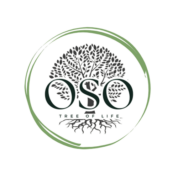Local businesses are not just familiar storefronts or convenience shops at the end of your street. They are the heartbeat of a functioning economy and the mirror of a community’s values. In Pakistan, over 90% of businesses fall under the category of small and medium enterprises (SMEs), contributing nearly 40% to the national GDP, according to SMEDA and the Pakistan Bureau of Statistics. In smaller cities like Parachinar, these businesses are even more crucial. They serve not only as economic engines but also as social anchors.
When we look at the state of a community, one of the clearest indicators of its stability and fairness is how its local businesses behave. Do they uplift the community—or exploit it? Are they guided by principles—or by unchecked profit? These questions matter more than ever, especially in under-resourced regions where people rely heavily on nearby shops for daily survival.
The Real Power of Local Businesses
In cities like Parachinar, local businesses aren’t just optional conveniences. They are the first responders to economic stress, the distributors of essential goods, and often, the only visible form of market interaction for families. If these businesses operate fairly, they help build trust, stability, and resilience. But if they prioritize profit over people, the damage runs deep—financially, socially, and psychologically.
Unfortunately, when profit becomes the sole objective, many businesses fall into destructive behaviors that compromise both ethics and community well-being. Some of the most common practices include:
- Hoarding products to sell at inflated prices during periods of scarcity
- Reducing the quality of goods while keeping prices the same
- Cheating on weight, measurements, or quantity to increase profit margins
- Using false advertising or emotional manipulation to exploit trust
These practices don’t just result in economic loss—they corrode social bonds. They breed distrust and teach customers, especially those with limited options, that fairness is a luxury they cannot afford. Over time, this erodes the social fabric of the entire community.
The Psychology of a Corrupt Market
The long-term impact of unethical business practices goes far beyond the price tag. When people feel consistently cheated or manipulated, their behavior begins to change. They stop believing in fairness, and they start assuming everyone is out to deceive them. This cycle leads to what could be called a “social mirroring effect.”
In such a system, individuals who were once victims of corruption may begin replicating the same dishonest practices at their own level, thinking it’s the only way to survive. The distinction between right and wrong becomes blurred, and eventually, corruption becomes the unspoken norm. Not because people are inherently bad—but because they adapt to the conditions they live in.
This shift affects more than just economics. It shapes how people trust, relate, and interact with one another. It tells the next generation that manipulation is strategy, that honesty is weakness, and that community is merely transactional.
When the Market Loses Its Soul
When corruption becomes routine in the marketplace, it strips the market of its deeper role as a space for social cooperation. A fair market builds relationships, nourishes dignity, and reinforces shared values. A corrupt market does the opposite—it isolates, exploits, and divides.
This is especially dangerous in close-knit communities, where social interdependence is a survival mechanism. A market driven solely by self-interest becomes a predatory space, rather than a cooperative one. It serves no one—not even those who profit from it in the short term—because it creates a society where everyone is looking over their shoulder, and no one feels safe.
Rethinking the Role of Local Business
So what does this mean for local businesses in places like Parachinar and beyond? It means that with great influence comes great responsibility. Local businesses hold the power to either reinforce a cycle of exploitation or to become agents of ethical change. They can choose to compete on values—not just margins.
A business that operates with transparency, fairness, and social concern sets an example. It tells its customers: “You matter.” It tells the youth: “There is another way.” And it tells society at large: “Integrity is profitable.”
In a context like Pakistan’s—where trust in institutions is often low and the informal economy dominates—this kind of leadership is not only admirable; it’s essential.
A Glimpse at What’s Next
At OSO, we are exploring exactly these questions. Our Purchasing Power Program (P3) was built on the idea that businesses and communities can collaborate to create systems that are both sustainable and fair. By building formal agreements with vetted shops, offering transparent discounts, and removing cash-based loopholes, P3 proves that ethical commerce is possible—even in the most challenging environments.
But this is only the beginning. The deeper transformation comes when more local businesses begin to see themselves not as isolated actors, but as essential parts of a larger social mission.
That mission? To create markets that serve people—not prey on them.
Coming Soon: The Values That Shape Business
In Part 2 of this series, we will examine the specific values and responsibilities that local businesses must adopt to genuinely serve their communities. We will look at what it means to be ethical, not just legal; to be generous, not just efficient; and to be accountable, not just profitable.
Stay tuned. Because the future of our economy—and our society—depends on the choices our businesses make today.



